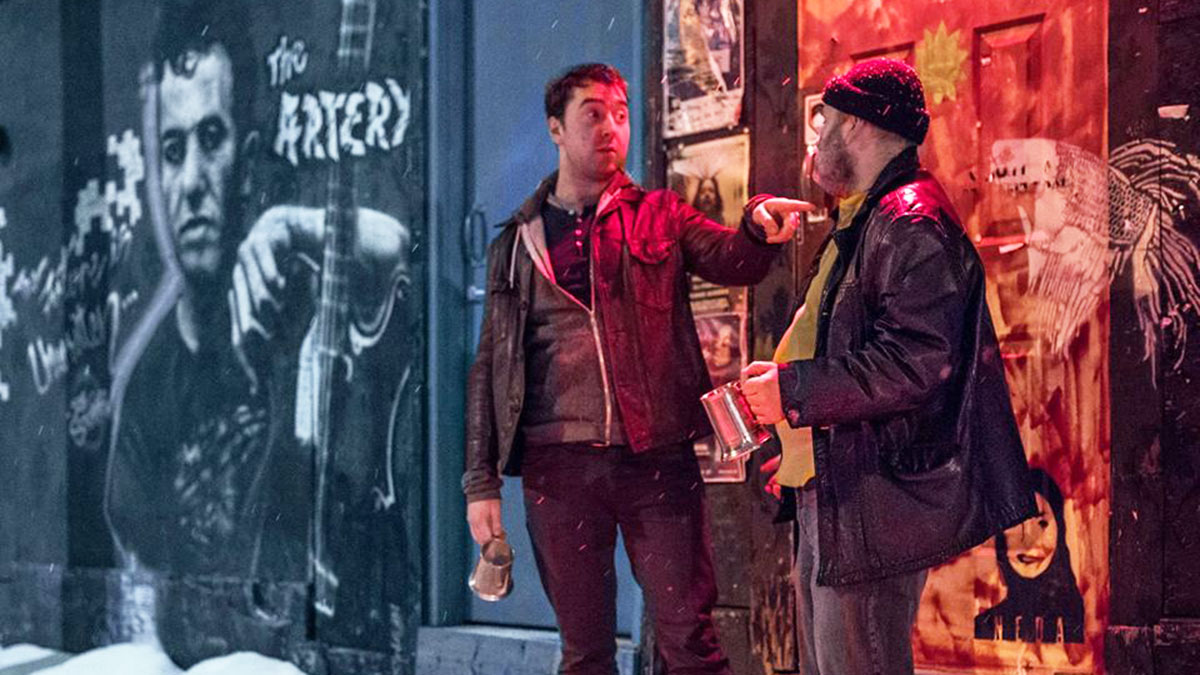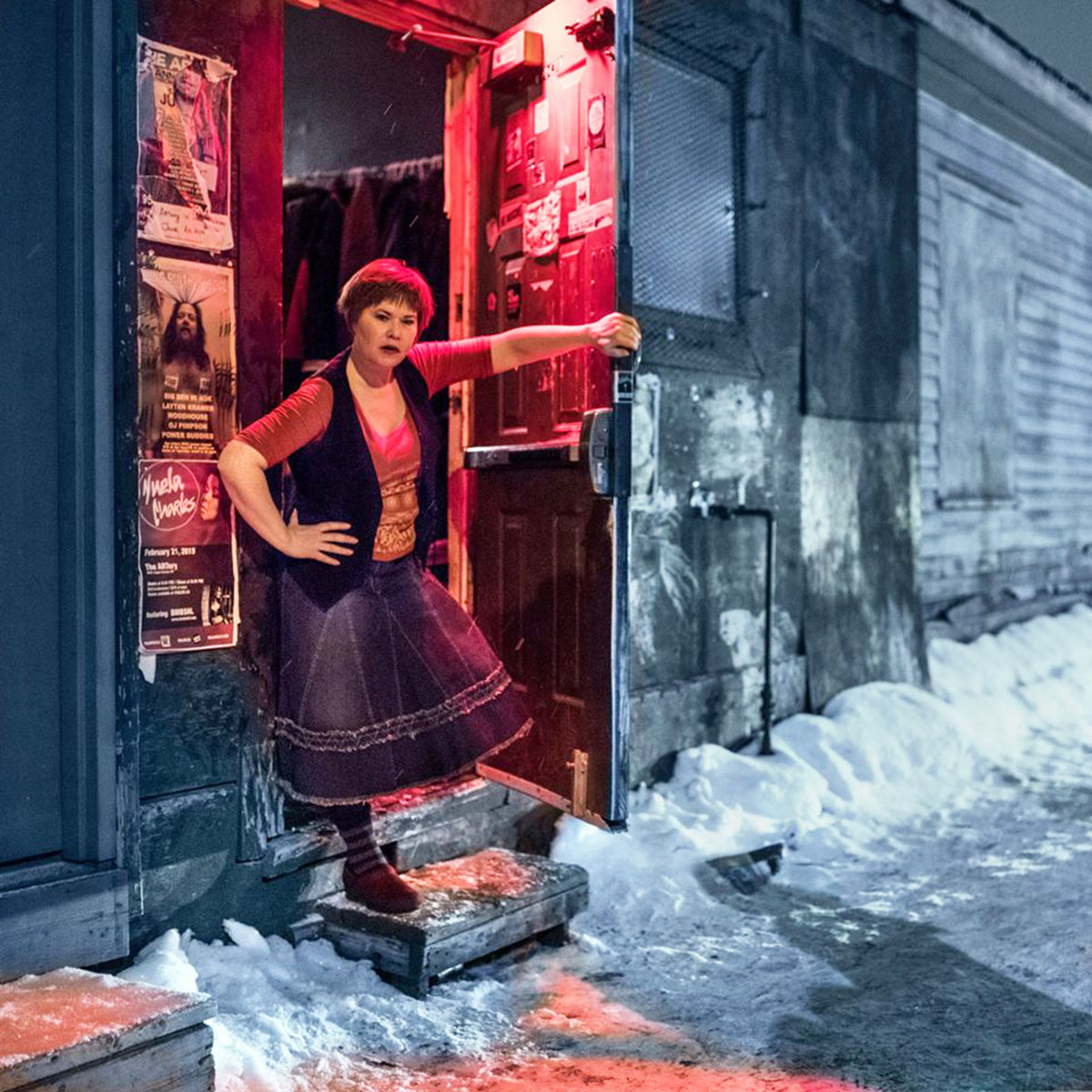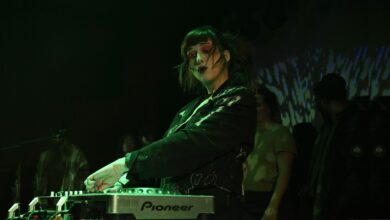The Falstaff Project putting spin on Henry IV
 Supplied - Nico Humby
Supplied - Nico HumbyThe Falstaff Project by Thou Art Here Theatre
When: Monday, March 9 to Friday, March 15 at 7:30 p.m.
Where: The Artery, 9535 Jasper Avenue
Directed by: Andrew Ritchie
Starring: Troy O’Donnell, Neil Kuefler and James MacDonald
How Much: Show and music $20 (yeglive.ca), Music only $5 at the door
As Thou Art Here Theatre prepares to perform an adaptation of Henry IV in a bar, a line in Associate Director Neil Kuefler’s online biography resonates with multiple meanings: “trust your guts.”
From March 9 to 15, before local musical acts take the stage, Thou Art Here Theatre will perform The Falstaff Project, a creative retelling of Shakespeare’s Henry IV.
Thou Art Here is an Edmonton-based, site-sympathetic Shakespeare company that performs in atypical theatrical settings, or found spaces. The company has recently performed in Rutherford House, Remedy Café and in the wide front entrance of City Hall.
They chose to adapt Henry IV because of its humour, something that most people don’t identify with when they think of Shakespeare.
“A lot of people don’t know, but (Henry IV Part 1) is an unbelievably funny piece,” says Kuefler.
In Thou Art Here’s version, veteran actor Troy O’Donnell plays Falstaff and Kuefler plays King Henry’s son, Prince Hal. Queen Elizabeth I so enjoyed the drunken, ribald, “fat-kidney’d rascal” of a character named Falstaff, she commissioned Shakespeare to write another play featuring the character. This is where Thou Art Here’s creative liberties step in.
The story retelling focuses on Prince Hal and Falstaff the knight in their time leading up to the battle of Homildon. But instead of preparing for battle, Hal and Falstaff are found in a tavern performing drunken antics.
Hal, Kuefler says, initially tries to reconcile his obligation to the high society and his love of the low. But with a filmed news report and a live Facetime conversation during the show featuring James MacDonald as King Henry, Hal and the audience feel imposed upon. Hal ignores King Henry’s wishes, and begins harassing his friend, Falstaff. While the humour and harassment are fun for Hal, he gradually begins to realize he must accept his duties as a princely leader.
Kuefler doesn’t reveal if Hal chooses high or low but assures audiences the ending is “pretty intense.”

He says navigating unexpected situations is part of the challenge and the fun for Thou Art Here. Blocking is loose, and in the tradition of early Shakespeare performances, there is room for improv.
“If somebody drops a line, we’re going to call attention to it and make a joke out of it,” he says.
Kuefler especially enjoys Thou Art Here’s intimacy, immediacy and its proximity to real life. As opposed to watching real people perform on a stage, Kuefler says The Falstaff Project has “(actors) that can pat you on the shoulder and say ‘Don’t you agree?’”
Kuefler adds that performing in local venues that characterize the city’s distinctiveness strengthens a sense of community.
“We’re trying to find spaces that will host us that people want to come to, that are familiar to them,” Kuefler says, adding that the mentality of Thou Art Here is “don’t try to bring people to the theatre. Try to bring theatre to the people.”
Kuefler says that performing in a small space and roving around the audience with beer in hand increases the actors’ awareness and creates some interesting audience/actor interactions.
“You could take a step back and there’s a person there and you bump their beer and they spill their beer on themselves. You got to be ready for that in the audience. But at the same time, we got to be ready for that as the artist,” he says.
Whether or not the actors drink real beer is a secret. While Kuefler says drinking adds a sense of levity during the show, the Porter in MacBeth warns: “(Drinking) provokes desire, but it takes away the performance.” If someone wants to have some fun and replace fake beer with real stuff, the actors will simply have to ignore the Porter’s advice and trust their guts.




